What Happens When a Trucking Company Violates FMCSA Rules?
When a trucking company breaks the rules set by the Federal Motor Carrier Safety Administration (FMCSA), the agency may issue fines against the trucking company or close it down altogether. Trucking is one of the most dangerous industries in America. This is as true for truckers as it is for other road users. Consequently, the industry is highly regulated, and violations are taken seriously. When these violations lead to accidents, compensation for the injured victims is likely.
What Happens After the FMCSA Violation
Who is liable when a trucking company violates FMCSA rules? Is it the trucker who violated the rule or the company they work for? In most cases, the company bears the responsibility. According to the Department of Transportation, trucking companies must ensure that all drivers adhere to safety regulations.
Once your attorney identifies the liable party, they can file a claim or lawsuit. The trucker and the trucking company might face financial liability for the damages caused by their negligence. Sometimes, they settle privately. Otherwise, the case can go to court.
This means that if a driver violates FMCSA rules while on duty, the company may have some degree of liability. This is especially true if the company sanctioned or even ordered the violation, such as forcing drivers to stay on the road for longer hours.
FMCSA Regulations That May Lead to Compensation
The regulations cover a broad spectrum of the trucking industry, from drivers’ health to vehicle maintenance. Here are some of the rules most likely to affect truck accident cases.
1. Medical Requirements
Truck drivers must undergo regular physical examinations to ensure they are healthy. Medical requirements include vision, hearing, and blood pressure tests to ensure that the driver has no conditions that could affect their driving ability.
2. Substance Use Testing
FMCSA regulations require trucking companies to test truckers for drug and alcohol use. These tests should occur before employment, after an accident, and randomly throughout the driver’s career. The driver and the company may face serious consequences if a driver is under the influence while behind the wheel.
3. Hours-of-Service Limits
Driving while exhausted is one of the leading causes of truck accidents. FMCSA sets strict limits on how long drivers can operate a commercial vehicle before taking a break becomes necessary. Truckers must take regular rest periods and adhere to hours-of-service regulations to prevent accidents.
4. Training Requirements
Truckers must undergo specialized training to obtain a commercial driver’s license. This includes knowing how to safely operate the vehicle, proper loading and unloading procedures, and understanding safety regulations. A company must provide adequate training or ensure that all drivers receive it. Truckers might also need training on specific vehicles.
5. Weight Limits and Securing Cargo
FMCSA sets regulations on the weight of cargo that can be transported by commercial vehicles and how it should be secured. Overweight or improperly loaded trucks can cause accidents, especially in hazardous conditions or when making sudden maneuvers.
Get Help from Rhine Law Firm
If you or a loved one has been injured in a truck accident, seeking legal help from an experienced truck accident lawyer could make or break your case. Our lawyers can investigate and help determine the cause of the accident and whether any FMCSA regulations were violated. We’ll then estimate the compensation you could receive and build a solid case to win it. Contact us to get started today.
About Us
Rhine Law Firm, P.C. serves clients throughout North Carolina and nationwide, specializing in complex civil litigation led by Joel Rhine. With expertise in personal injury, car accidents, property damage, sex abuse, and more, the firm is passionate about taking on challenging cases. They emphasize providing personalized legal representation, prioritizing their clients’ best interests while offering state-of-the-art legal strategies. Rhine Law Firm’s dedicated attorneys enjoy the fight for justice and are committed to guiding clients through complicated legal processes. The firm offers free consultations, flexible appointment scheduling, and Spanish language services.




